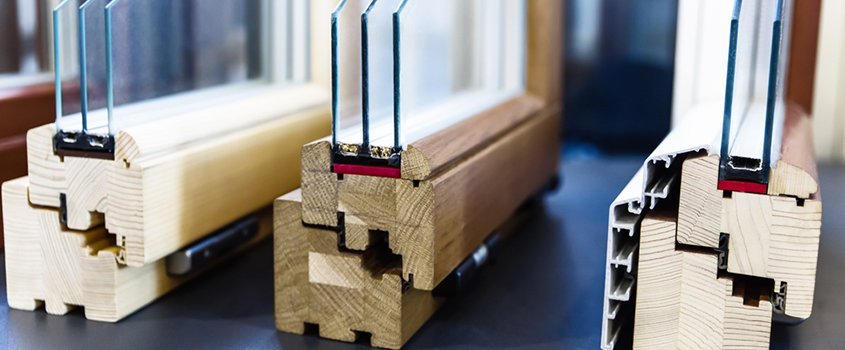Is Triple Glazing More Efficient Than Double Glazing?

If your single-glazed windows aren’t doing their job, double glazing is usually the answer. But what if double glazing doesn’t cut it?
Many homeowners turn to triple glazing for that extra heat and noise insulation. However, not everyone is convinced of its efficiency.
Read on as we explore whether triple glazing is worth the money and if your money could be better spent elsewhere…
Double and triple glazing explained
The design difference between double-glazed windows and triple-glazed windows is exactly as you would expect. Double-glazed windows have two panes of glass with one gap. This thin gap of air – usually around 5-20mm – provides extra insulation and prevents the interior pane from direct contact with the cold air.
Triple-glazed windows, on the other hand, have three panes of glass with two gaps. In theory, this extra pane should improve thermal efficiency in the same way the second pane does. That’s why triple glazing used in countries like Finland and Norway, where temperatures drop far below the typical UK winter lows.
Triple insulation?
Unfortunately, that third pane doesn’t improve insulation to the same extent as the second layer of glass. In other words, the difference between double and single is far greater than the difference between double and triple. Let’s look at the numbers…
Researchers from the Passive House Institute monitored the temperature of a window’s internal surface with different glazing types. In the same cold conditions, they found internal surface temperatures were as follows:
- Single-glazed – 1°C
- Old (pre-2000) double-glazed – 11°C
- Modern double-glazed – 16°C
- Modern triple-glazed – 18°C
From this, you can see it’s worth getting triple-glazing if you’re upgrading single-glazed or old double-glazed windows. If you’re already paying for new windows, you will only be paying the price difference between double and triple glazing for the difference in insulation. However, if you already have modern, energy efficient double glazing, it’s not worth forking out the full cost of triple glazing for that same marginal benefit.
Triple glazing alternatives
With that in mind, what should you do if your double-glazed windows aren’t providing enough insulation? Don’t worry, you’re not stuck with that cold chill in winter, or noise creeping in. Secondary glazing is a useful solution when you want to improve the insulative quality of your double-glazed windows.
It works by adding a secondary pane on the inside of an existing window. Unlike triple glazing, the gap is a different size to the existing double-glazing cavity, making it more efficient for noise and heat insulation. There’s also much less impact on your home as your windows don’t need to be taken out and replaced.
Clearview Secondary Glazing
Looking to optimise the thermal efficiency of your existing windows? At Clearview, we supply and install high performance secondary glazing for homes and commercial properties across the UK. With our help, you can improve your windows’ insulative quality, reduce noise in your home and minimise your energy bills. Get your free quote today using our online fast quote system.

Discover How To Stop Draughts for Good And Save On Your Energy Bills
This free eGuide – written by specialists – explains in simple terms how to improve the thermal efficiency of your windows by more than 60% and how you can reduce your yearly heating bill by 15%.
Simply enter your name and email below and we will send a free copy straight to your inbox.



